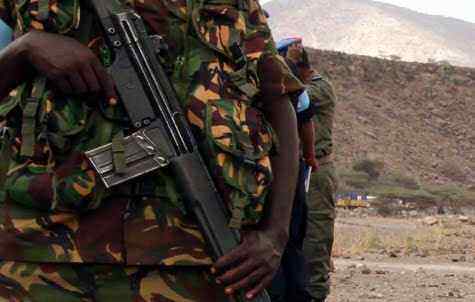
I am a Nigerian soldier and I am deployed in Borno State on a mission to fight Boko Haram. I see what is happening as a war. I have been lucky to survive, but many of my fellow soldiers have died and many have received serious wounds all in the name of fighting this religious war.
Because of what I have seen in this war, I have thought, “What if there were no churches and no mosques?’’ “What if individual attitudes and characters are based on what one was taught by one’s parents or guardians and/or influenced by one’s environment?” After all, the two main religions in Nigeria, Christianity and Islam, have precepts based on cultures and traditions of their originators.
If Christianity is to be followed, it will tantamount to following the norms and culture of the olden days’ Antiochenes. Edward Gibbon once wrote, “Fashion was the only law, pleasure the only pursuit and the splendor of dress and furniture was the only distinction of the citizens of Antioch. The arts of luxury were honoured, the serious and manly virtues were the subject of ridicule, and the contempt for female modesty and reverent age announced the universal corruption of the capital of the East.’’
How many of our contemporary Christian denominations still go by the above? Is fashion still the only law? If not, then must we continue to follow exactly what is written in the holy book as so-called Christians even when we are no more in those dark ages? The ages when eyes were located on the knees?
As well, if Islam is to be followed totally, it means its followers should behave like the Arabians, since the prophet, Muhammad ibn ‘Abdullahi, the founder of the religion of Islam, was born in the Arabian city of Mecca in 570 CE.
To be a true Islamic faithful and real follower of the holy prophet, if I may ask, must one act and dress exactly like the Arabs, since that is the origin of the prophet? Is it actually written in the two Holy Books that unbelievers of the respective religions should be slain? Why can’t we put our cultures, norms and traditions as the bases of our practice of these two faiths in so far as tradition has being the basis of religion?
We are Nigerians, we are Hausa, we are Igbo, we are Yoruba, we are Ijaw, we are Tiv, we are Langtang—so why don’t we inculcate our way of life into our religions? Why is it easier for a Yoruba man to marry an Efik woman than for a Muslim man to marry a Christian woman? Why?
I think Nigerians will gladly vote for a candidate of their choice as their president irrespective of ethnic group or religion, until some religious extremist wakes up with the propaganda of “He is not of so-so religion.” Must religion be a determinant of our way of governance? Can’t we just separate religion from government since our country is secular?
Why can’t we make religion a thing of the mind? Why can’t Nigerians serve their God the way they want at the same time as they respect and understand others’ will? That is my own definition of civility. And we need civility instead of this senseless killing of fellow Nigerians in the name of God.
In a vehicle of passengers of mixed faiths, must the driver who happens to be a Muslim stop along the road to say his prayers even when there is room for Qadaa in the holy Quaran, and when the driver knows that there are other passengers with another religious perception? Can’t the driver perform a Qadaa to cover-up the unavoidably missed prayer?
In a Muslim-dominated state as Kano State, must church members dance along the major roads in the name of “special program publicity,” thereby obstructing other road users and probably causing avoidable traffic congestion on the road? Why can’t we all respect one another’s will and opinion as a people when we know that what we are doing is not necessarily a MUST to please our respective gods?
As a soldier in the frontline of the war against Boko Haram, I am worried that we are sacrificing thousands of lives just because of the idea that it is right to kill and destroy those who belong to other religions.
*The author is a soldier deployed in Borno State. The piece was slightly edited

